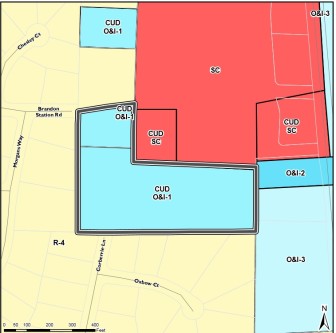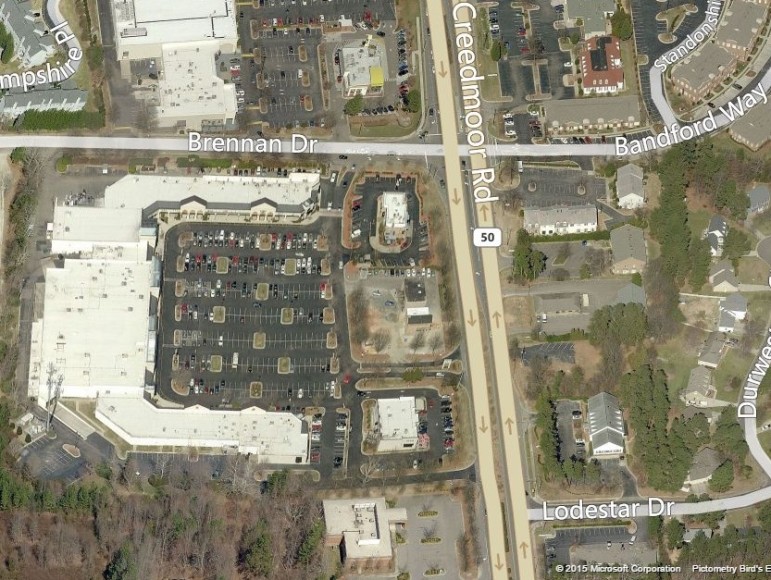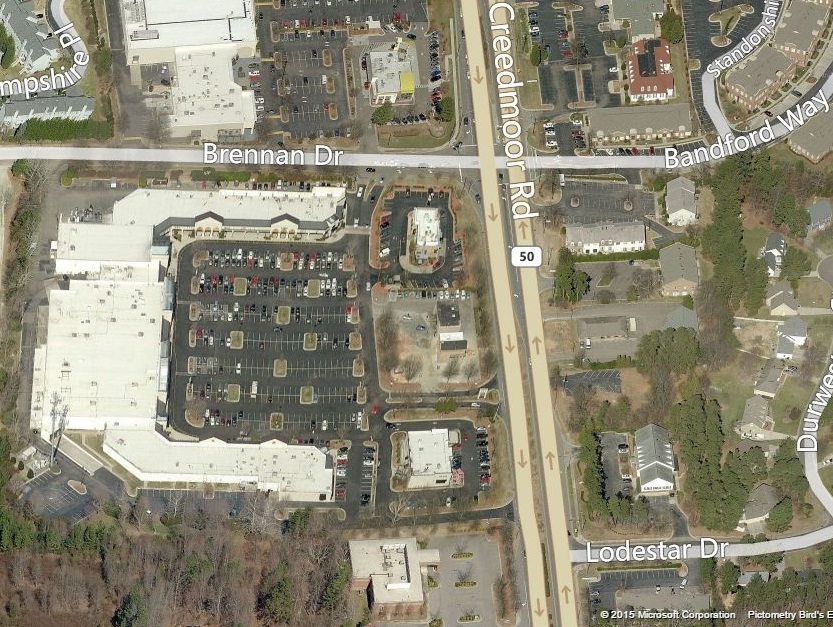Planning Commissioners on Tuesday heard items relating to a text change for published notice requirements, a zoning case on Creedmoor Road and a transit choices report.
Item TC-1-15 concerned a text change regarding published notice requirements for large scale zoning map amendments. The text change would exempt the city from advertising notice requirements of zoning changes in the newspaper. Property owners affected by zoning changes would still be notified by direct mail and could find more information through different channels. The city would save $200,000.
The text change was adopted unanimously.

City of Raleigh
Zoning case Z-22-14 would allow for office and residential development
Item Z-22-14 concerned the rezoning of a 6.73 acre property on Creedmoor Road. The proposed rezoning was from Office & Institution-1 CUD to OX-3-CU, which will allow for office and residential use and was seen as consistent with the Comprehensive Plan and the Future Land Use Map.
Before the applicants’ turn to present, the commission members asked staff about the “stub roads” leading to the property. Staff explained that the roads were not maintained by the city of Raleigh but by another government entity, adding “Right now they’re in pretty bad condition.”
Isabel Mattox, the lawyer for the applicants, made the case for her clients by focusing on the principles of connectivity and more housing options for Raleigh. She stated that adding condominiums, townhomes, or single-family houses would not increase the overall density in the area.
“We do think there are significant public benefits here,” Mattox said.
In opposition, local resident Ben Kuhn spoke for 20 minutes on behalf of a contingent of neighbors surrounding the property about the problems the rezoning would cause the area.
Kuhn spoke about the road infrastructure, saying it was in terrible condition. He referred to the roads as “alligator back,” a phrase coined due to the pavements many cracks along a cross-section.
“It would be a detriment,” Kuhn said. “It would not be in the public interest. It would not be reasonable.”
Kuhn also referenced staff reports and city policies to further his argument. In his view, the rezoning would not be consistent with the Comprehensive Plan and that residential development would not be suitable next to the impacts from the shopping center, which includes dumpsters and garbage trucks.

Bing Maps
The area on the left side of the map near the shopping center may soon house offices and residential units
When the item was brought back to the table, questions arose about the condition of the streets.
Travis Crane, planning and zoning administrator for the city of Raleigh, said if the area was annexed, the streets would need to be either terminated or connected. “[We’d] need to treat those streets.”
Commissioners stated that, as the issue stood, they were either unable to vote on or would vote against the rezoning without more information. Staff was then instructed to provide a formal written document related to streets at the next meeting, and the item was deferred.
The commissioners also received an informational presentation about the Wake County Transit Strategy, which has the aim of establishing a new vision combined with public outreach and public education.
Led by Jarrett Walker & Associates and Kimley-Horn, the team authored the “Transit Choices Report,” which covers topics ranging from major transit projects in the history of the area to the transit planning toolbox.
A team member who was presenting said, “It’s really a snapshot of where we sit today.”
